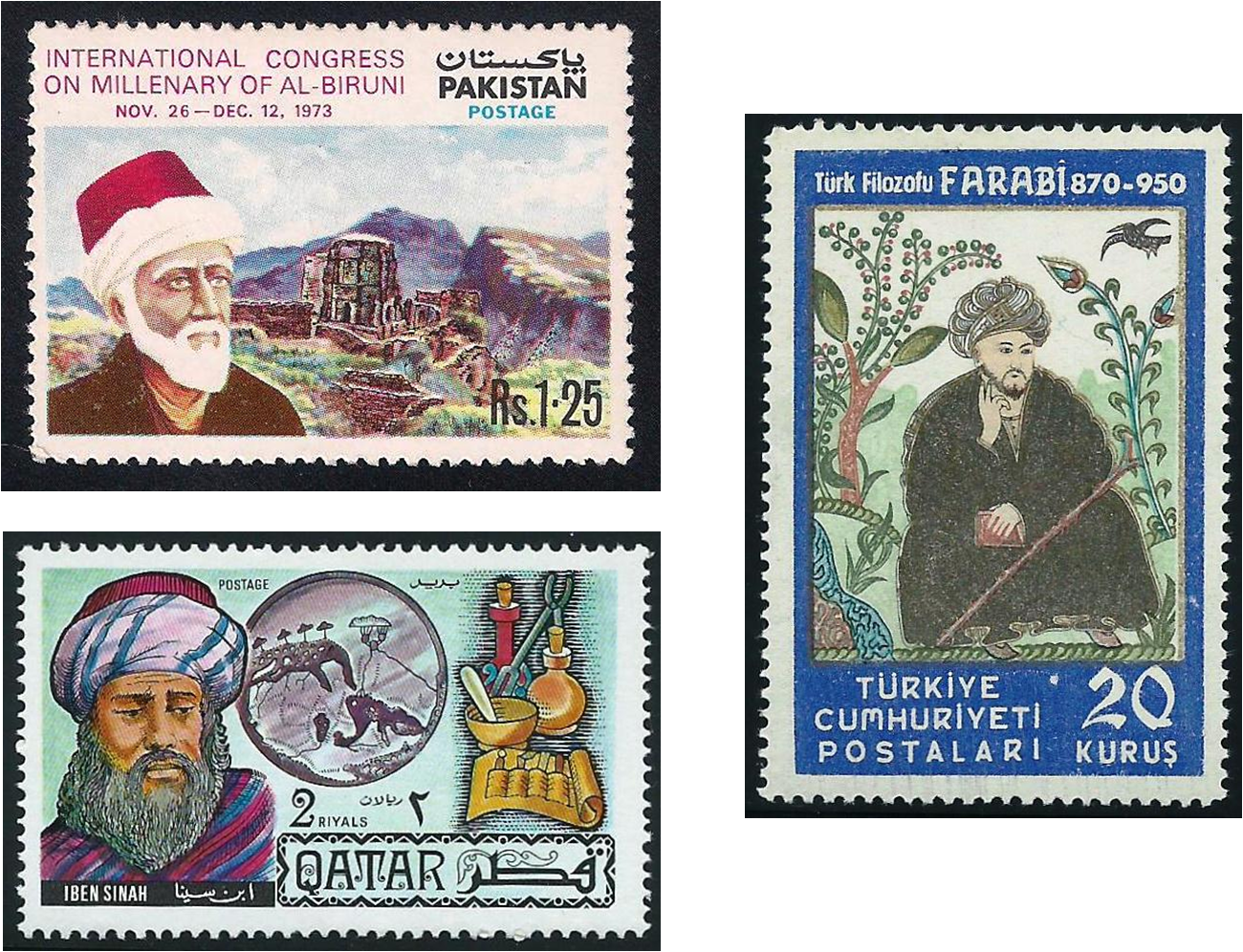Islamic scientists
The period from 750 to 1400 was an important time for the development of mathematics. United by their new religion, Islamic scholars seized on Classical works from the west and Hindu writings from the east, wrote extensive commentaries on them, and developed them.
An outstanding philosopher of the period was the Islamic scholar al-Farabi (c.878–950), whose mathematical writings included an influential commentary on Euclid’s Elements.
Al-Biruni (973–1055) was an outstanding intellectual figure who contributed more than 140 works, primarily on arithmetic and geometry, astronomy, geography and the calendar. He was one of the first mathematicians to investigate the tangent, cotangent, secant and cosecant functions.
The most celebrated of Persian philosopher–scientists, best remembered for his treatises on medicine, was ibn Sinah (980–1037), usually known in the west as Avicenna. He contributed to arithmetic and number theory, produced a celebrated Arabic summary of Euclid’s Elements, and applied his mathematical knowledge to various problems from physics and astronomy.
[Pakistan 1973; Qatar 1971; Turkey 1950]
Published/edited: 01/09/2015
